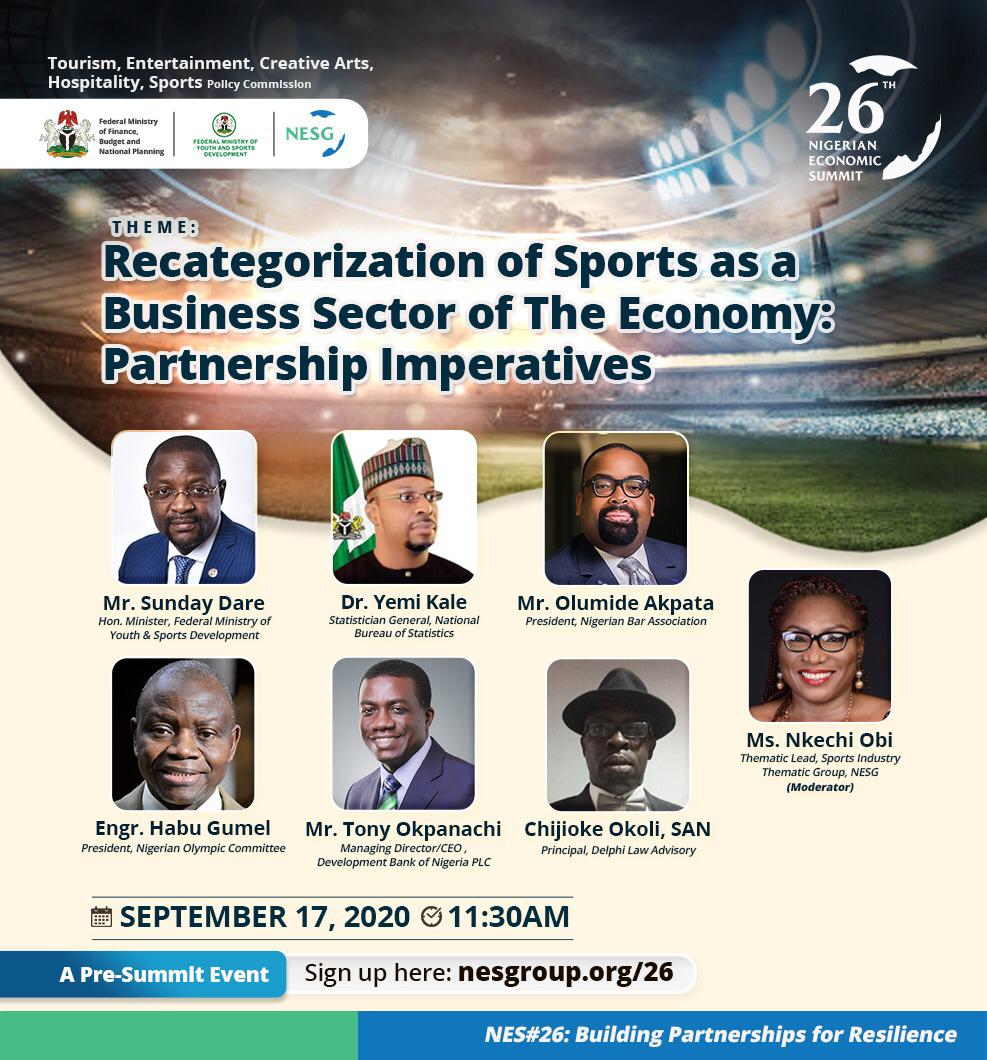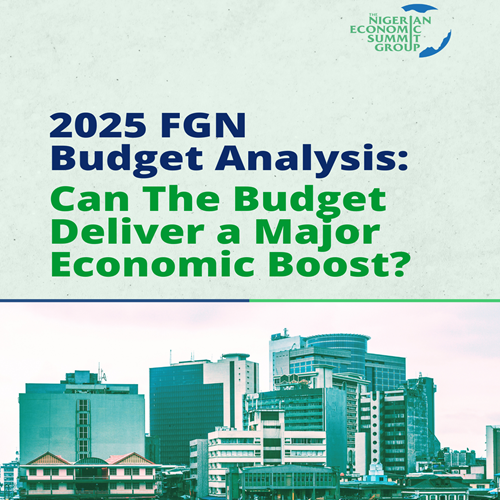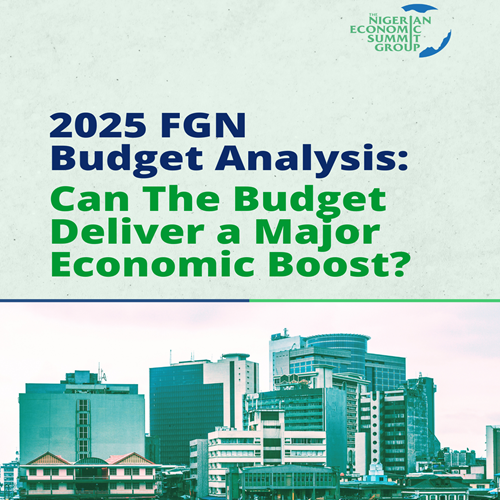Posted Mon, Sep 21, 2020 6:44 AM
NES26 Pre-Summit Event: Recategorization of Sports as a Business Sector of the Economy: Partnership Imperatives

NES26 Pre-Summit Event: Recategorization of Sports as a Business Sector of the Economy: Partnership Imperatives
The 26th Nigerian Economic Summit pre-summit events will help to shape strategic partnerships to chart a path to recovery, and build resilience for the country’s economy, businesses and households by delivering conversations that will put Nigeria in a strong position within the changing world order. It is on this premise that another #NES26 pre-summit event with the theme “Recategorization of Sports as a Business Sector of the Economy: Partnership Imperatives” took place on the 17th of September 2020.
The Honourable Minister for Youth and Sports Development, Mr. Sunday Dare while delivering the keynote address said that sports was categorized as recreation and has just been recategorized as a business. He stated that Sports has the economic capacity through production and services to grow faster in lower income countries than higher income countries and is a labour intensive growth industry. Furthermore, the Minister said that the new outlook of sports industry unlocks conferment of priority status and enable the industry’s eligibility for incentives, development of metrics for impact measurement, consideration for special funding by the Central Bank of Nigeria, creation of jobs and tax rebate.

Mr. Dare reiterated that Nigeria needs US$500 million annual investment in sports infrastructure to deliver N2 trillion revenue in the next 5 to 10 years and the requisite investment can help to drive the largest real estate and infrastructure development in the country.
The Statistician-general of the federation, Dr. Yemi Kale said that Sports is big business and it is estimated at US$500 billion globally. “In Nigeria sporting activity accounts for 0.005 percent of Nigeria’s GDP directly, however, the indirect effect is much higher. Sports is still a small business in Nigeria but has the potential to be much bigger. We need to agree what sporting activities should constitute and focus on data integrity, collaboration with relevant agencies and most importantly ensuring the steady funding for data computing as related to the sports industry.” Dr. Kale stated.

The president of the Nigerian Bar Association (NBA), Mr. Olumide Akpata said the recategorization of sports as a business would help to reposition Nigeria and providing the necessary legal framework which will effectively result in a booming and productive sector. He stated that “dealing with the issues of the sports sector requires paying attention to the laws that underpin that sector and indeed other sectors. We must be sure that the Nigerian legal profession receive training in that regard considering the fact that it is a specialized area. We must ensure that there are lawyers interested in building capacity in the sports sector and the NUC, Nigerian law school and other areas are carried along. Mr. Akpata mentioned that the NBA section on business law has a sports entertainment committee and that his administration will ensure capacity building and re-engineering to ensure that sports law become a key part of the profession.

Mrs. Arume Ighoroje-Tsekiri representing Mr. Tony Okpanachi Managing Director, Development Bank of Nigeria (DBN) Plc said there is a need to understand the dynamics and find ways to help banks channel funds to make the sports sector a productive one. She mentioned that DBN gives partial credit guarantees and works with different partners for value chain enhancement and job creation; and that Sports funding must be derisked for the growth of the industry.
The President, Nigerian Olympic Committee (NOC) Engr. Hubu Gumel represented by Mr. Francis Orbih said that sports is a viable business and national federations need to work with others to take the game to the grassroots to drive mass participation. He reiterated the need for a proper governance structure that will attract the private sector and stated that Federations must be fit for purpose since Sports has a huge potential for youth employment when properly administered.
Mr. Chijioke Okoli, SAN, Principal, Delphi Law Advisory said that sports is on the residual list in Nigeria’s constitution and is not mentioned on the legislative list, saying that this points to the importance of its recategorization from recreation to a business.
Head of the Sports thematic group of the Tourism, Hospitality, Entertainment, Creatives and Sports as a business (THECS) Policy commission of the NESG, Mrs. Nkechi Obi, said that Nigeria has the potential to earn huge revenue from the sports industry and that the industry has achieved a number of developmental milestones towards its re-categorization as a business. Speaking in the same vein, Dr. Ikenna Nwosu, Facilitator of the THECS Policy Commission said that the days event will affect the AU agenda on sports and that the Policy commission will continue to follow up to tie lose ends and ensure the transformation of Nigeria’s Sports industry.
The 26th Nigerian Economic Summit will be the highpoint of a ‘Big Conversation for Action’ driven by pre-Summit events. These virtual events will kickstart discussions on this year’s Summit Theme and will enable us convene a wider range of stakeholders to deliberate on a broad set of thematic and sectoral issues with key outcomes.
The theme of this year’s Summit is “Building Partnerships for Resilience” and it is scheduled to hold from October 26 – 27, 2020. Discussions at NES #26 will be anchored on three pillars – Collaboration, Execution and Impact – and dimensioned across five sub-themes: Mapping the Future; New Trends, New Opportunities, New Horizons; Embracing Technology and Innovation; Building Resilience and Charting the Path to Recovery.
Find a blog post
Latest Releases

2025 FGN Budget Analysis: Can Th .. Read
1 day ago

2025 FGN Budget Analysis: Can Th .. Read
1 day ago
_1745876187.png)
Industrial Policy Commission Gen .. Read
2 weeks from now
